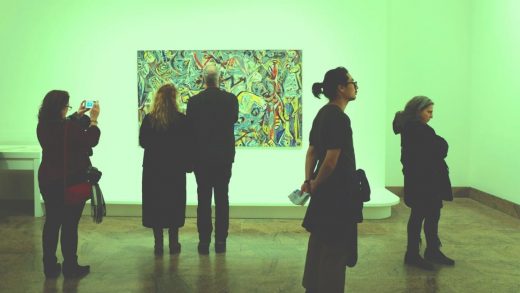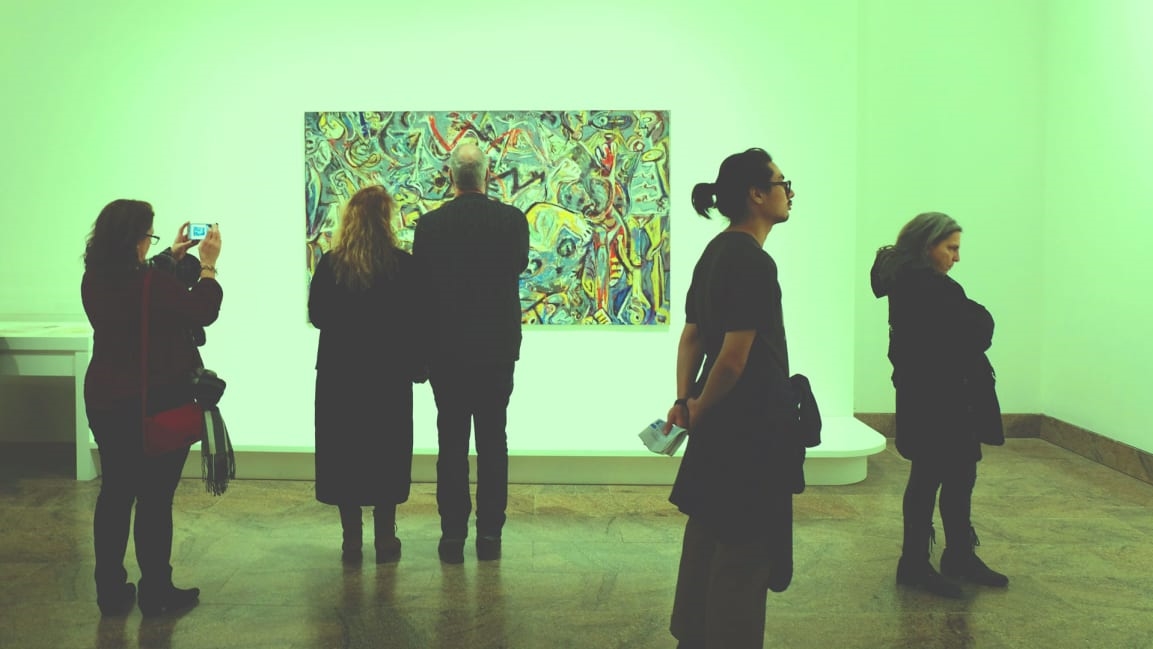This nonnegotiable practice has made me a better CEO
This may not be typical of a CEO to say, but I don’t spend my weekends working. Rather, I spend them observing and appreciating great art.
See, I’ve been passionate about art since high school, when I first saw Duchamp’s Nude Descending a Staircase—a piece that sparked a deep appreciation for art within me that I still carry to this day. But my commitment to spending my weekends surrounded by art amounts to more than mere interest, or even fascination.
Rather, it’s strategic. I’ve found that investing your free time in pursuits definitively removed and experientially distinct from your work or your business bears immense personal and professional benefits.
I realized this about two decades ago, back when I was living and working in New Orleans. Like many entrepreneurs, I was something of a workaholic. But it eventually became clear to me that burning the candle at both ends of the stick was not only unhealthy but also unproductive. So I made the conscious decision to begin dedicating my weekends to pursuits and interests that rejuvenated me intellectually and allowed me to reset—and to ignore my work until I returned to the office on Monday.
Initially, I did this by way of French lessons, meeting up with a local French woman to learn the language and stretch my mind in a new way. But upon moving to New York 11 years ago, I committed myself to the museums, galleries, shows, and exhibition openings that dotted my new backyard. And what I’ve found is that this practice has actually made me a better CEO.
Specifically, spending your free time disengaged from work and immersed in art helps you in two key ways. First, it helps you live a balanced life such that when you return to the office on Mondays, you come back fresh.
When you spend all your time surrounded by and focusing on your work—emails, unruly clients, cumbersome challenges—it beats you down, the way the ocean erode coastlines. You need to find ways to stay lively and energized about the work you’re doing. I love work and I love my company, Funeralocity, but the respite of a truly restful and disconnected weekend helps prevent me from losing that love. It also helps me operate sharper and more efficiently when I’m in the office.
It’s equally important for CEOs, however, to stay creative. You have to remain innovative, capable of conjuring creative solutions to tough problems.
As it happens, pondering art exercises your imagination in ways spreadsheets, client calls, and strategy meetings simply don’t. I’ve come up with some of my best ideas after a great French lesson, for example—or, more recently, while strolling around New York City with the vestiges of an inspiring exhibit fresh on my mind. In those moments, I can feel my mind operating in a different direction. I notice different things and make interesting connections, which I might have otherwise overlooked.
The catch, however, is that developing a habit of catering to your imagination and spirit so that you reap these kinds of creative benefits can be challenging. You have to resist the impulse all ambitious entrepreneurs feel to not waste time—to go go go. That takes discipline.
Moreover, the activity you choose must be something that makes you ask questions, or that truly works out a different part of your brain—the way engaging with art, learning a new language, or contemplating theater does. You don’t get quite the same benefits while watching a football game.
Keep in mind that you don’t have to spend all your time walking around museums to achieve this effect. Personally, most Saturdays, I do yoga in the morning, then venture over to the Metropolitan Museum and take the 11 a.m. tour. Or, I’ll find a specific exhibit or show to go to. I don’t, however, typically spend more than an hour or two there.
The point here is this: you don’t have to spend all your free time at a museum. What’s more important is giving yourself a chance to reset mentally and, moreover, giving your imagination a nice, digestible workout. The goal is not to exhaust yourself all over again but to engage muscles you don’t otherwise engage during the week.
Here’s the bottom line: spending all your mental energy thinking about work makes you dull. And you can’t let yourself become dull. Invest in your ability to be sharp, creative, and appreciative of the possibility of life. Seek out ways to exercise your imagination and engage with the finer aspects of this world—those aspects far removed from the confines of your cubicle or office.
This, as I’ve experienced viscerally in my own life, will make it so you’re the most effective version of yourself possible when, on Monday, you return to that office, ready to conquer the world.
This article originally appeared on Minutes and is reprinted with permission.
(20)



